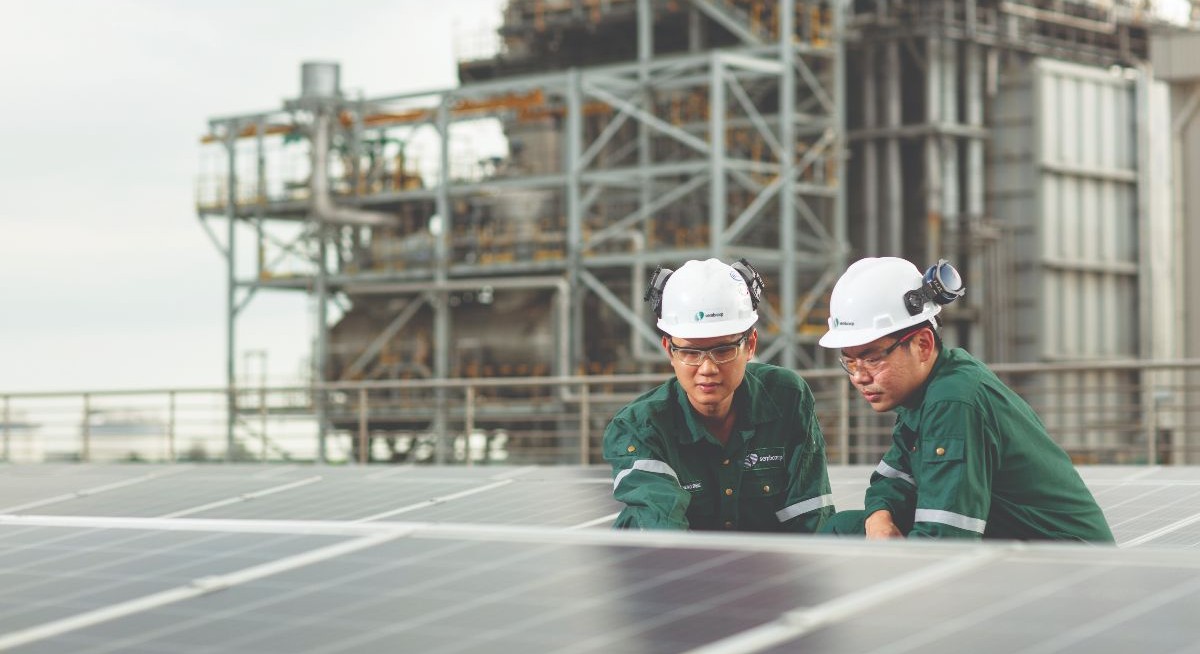In their Sept 6 note, CGS-CIMB analysts Lim Siew Khee and Izabella Tan reiterated their “add” call. However, with SCI having more to show in the decarbonisation front, they have switched their valuation model, ascribing a new target price of $4.78, from $3.80 previously.
“In our ESG benchmarking, we had said that successful decarbonisation efforts could lead to premium valuations ascribed to SCI as it is the only pure renewable energy proxy in Singapore,” note the CGS-CIMB analysts, who now value SCI based on a calendar-year 2023 P/E of 12x, which is at a 10% discount to SCI’s regional peers. The company’s renewable peers are currently trading at 28x.
The CGS-CIMB analysts believe that the divestment of the profit-making Sembcorp Energy India (SEIL) will not result in a “major dent” in SCI’s profits. “The absence of coal profits would be converted into a form of vendor financing, in our view,” they point out. They also note that the deconsolidation of SEIL would also reduce SCI’s pro forma net gearing to 1.37x from 1.75x as at end-1HFY2022, the analysts note.
See also: SCI achieves three objectives with India asset sale via deferred payment note
Citi Research analyst Jame Osman, too, views the deal positively, calling it a “balanced approach” to divestment, and a key “material” step towards the decarbonisation of its asset portfolio.
The disclosed valuation of SEIL is also higher than his previous estimate, he notes. This means that the net earnings shortfall post-divestment is effectively lower than expected, adds Osman, who has kept his “buy” call and $4.14 target price.
Osman says “opportunities abound” for SCI to reallocate its capital following the divestment of SEIL. “We expect Sembcorp to redeploy capital in the near to medium term towards earnings-accretive renewable acquisitions. The company appears to be actively pursuing market opportunities,” he says.
See also: Riverstone shares surge on UOB Kay Hian's higher target price of 98 cents led by AI-end demand
‘Significant decarbonisation milestone’
DBS analyst Ho Pei Hwa calls the divestment of the company’s stake in its India power plants at book a “significant decarbonisation milestone” that moves its green transformation ahead of schedule.
Ho, who has kept her “buy” call on SCI with an unchanged target price of $3.80 for now, sees multiple re-rating catalysts for the stock, among them the “good progress” of its renewable strategy and decarbonisation initiatives. She expects SCI might divest its last coal-fired plant in China next.
Ho’s target price is based on an FY2022 P/B of 1.6x, in line with SCI’s peers’ average in China and India.
Meanwhile, the improved supply/demand fundamentals in Singapore’s power market should boost its near-term earnings, notes Ho. “We are positive on SCI’s longer-term prospects as its growing renewable portfolio should continue to drive its valuation re-rating. Growth is expected to be funded by debt and internal cash flows,” she adds.
Last but not least, UOB Kay Hian’s Adrian Loh similarly sees an upward re-rating of SCI’s valuation multiples due to the “scarcity value of solid ESG companies in Singapore”. “SCI remains our top pick in Singapore for the quality of its earnings as well as its growth prospects in the near to medium term,” says Loh, who is keeping his “buy” call on SCI with an unchanged target price of $4.10.



